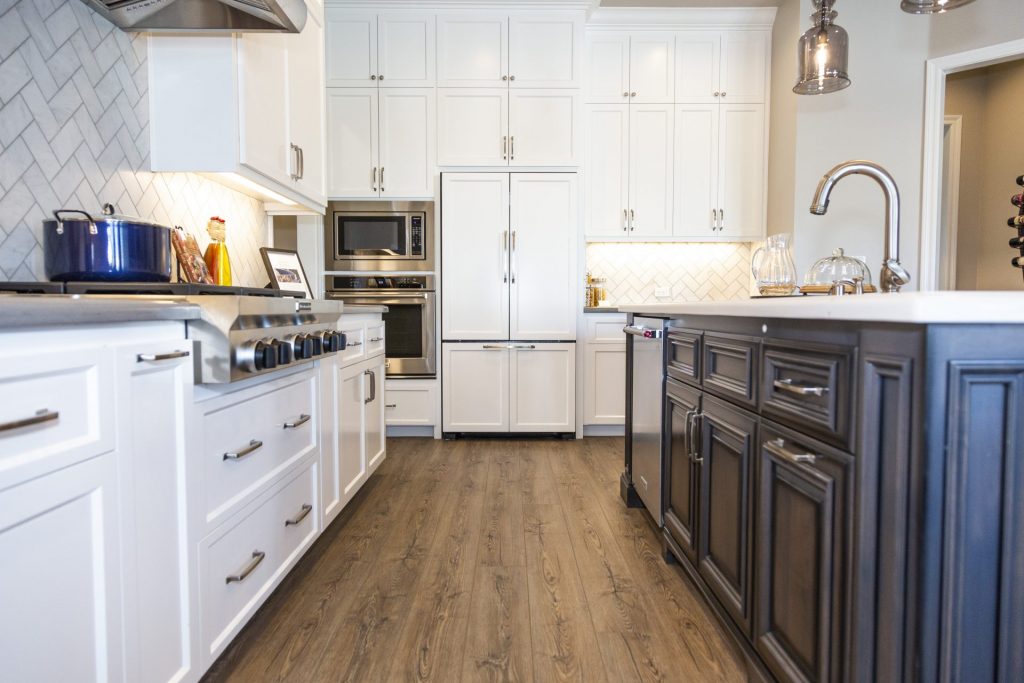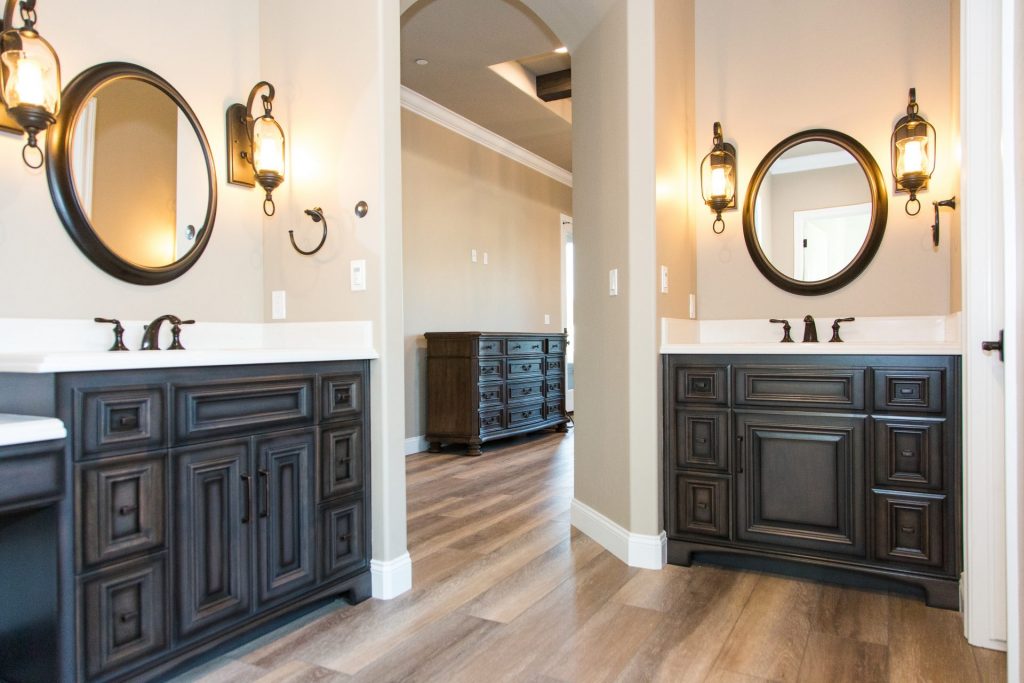Is Luxury Vinyl Right for Your New Home?
March 2nd, 2021 | by dpcustombuilder | Posted in Custom Builder, Flooring, green building
Custom homebuyers have asked what we think about this popular flooring. Here’s our answer.
We don’t often talk about products in this newsletter, but when lots of clients ask about a specific one, we like to offer our thoughts. That’s the case with luxury vinyl flooring.. We’re not the only ones getting questions: according to some articles we’ve read, luxury vinyl is one of the world’s fastest-growing floor coverings.
These products are sold as planks, commonly referred as “LVP” or tiles, commonly referred as “LVT”. Some are glued in place, and others are installed as a floating floor. Many have a photo-realistic surface layer that mimics natural wood or stone. They’re better looking than old fashion conventional vinyl, as well as thicker and more durable. They’re more difficult to scratch than site-finished or engineered hardwood, and if a piece gets damaged it’s generally easy to replace.

A luxury vinyl floor will cost less than natural stone and resist water much better than hardwood. That makes it a great choice for rough-use areas like kitchens, mudrooms and bathrooms. Some products can even be safely installed over radiant floor heat.
Of course, no product is perfect for every application, and we discuss at length the pros and cons with homeowners before they make a final decision. We feel that sharing our understanding and research helps our clients make the best possible choice for their family.
Let’s start with aesthetics. Even though luxury vinyl products are attractive, you need to make sure you actually like the look. For instance, manufacturers advertise their plank products as being nearly indistinguishable from real hardwood. They do come close, but and in fact a lot of customers mistake the planks for wood-look ceramic tile. There’s nothing wrong with that; the only question is whether it’s what you want.
There’s also the cost. Many people assume that a faux-hardwood LVP plank will be less expensive than real wood, whether engineered or site-finished. But that’s not necessarily the case as engineered hardwood is priced based on the species, finish and warranty.
One reason for luxury vinyl’s price is it’s rising demand from homeowners. Another is that some luxury vinyl products or the job may require the installer to place an engineered underlayment between the vinyl and the subfloor or slab. The underlayment provides cushioning, muffles sound, and in certain instances serves as a moisture barrier.

Finally, there’s the issue of water from above. Luxury vinyl products are marketed for use in wet areas like baths, and they are indeed water resistent. However, if the floor will be habitually wet, or if a broken pipe floods the room, water can seep in around the edges and under the floor.
If water gets in around the edges of a glue-down floor, the problem will stay at the edges and you’ll probably only need to replace a few boards or tiles. With a floating floor, by comparison, water can seep further underneath. Part of the finished floor may need to be removed to prevent mildew problems or damage to a wood subfloor. Each type also has their own unique finish surface appearance.
The bottom line is that luxury vinyl is great for certain situations. But like most engineered products, it needs to be chosen wisely and installed in a way that ensures long-term durability. That requires a firm understanding of how the product will perform over the long term, and it’s why professional builders make a point to educate themselves on the latest product trends.
Warm Regards,

